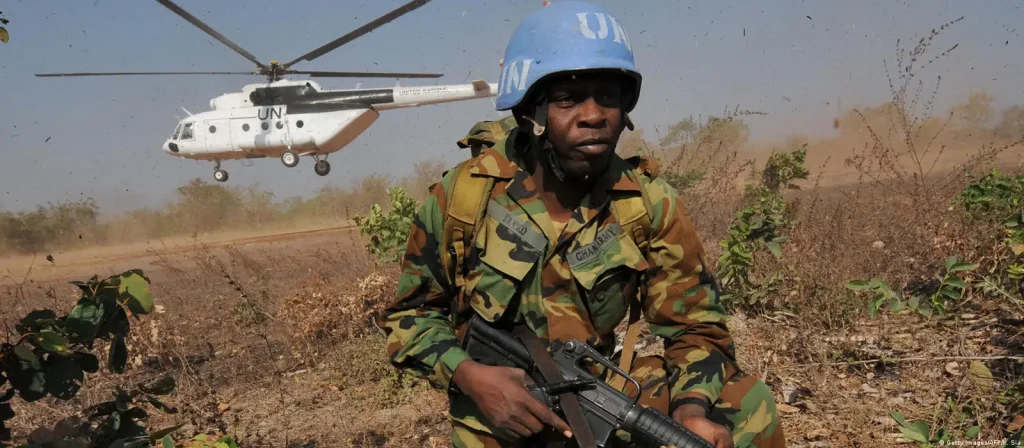Ghana is facing some threats and expansion of terrorism. The attacks in Burkina Faso in recent months have led to the establishment of a curfew in twelve areas of northern Ghana.
Now, Ghana’s military is stepping up to checkmate the terrorists.
As a guest of honour at the opening ceremony of the Ghanaian military’s annual Exercise Eagle Claws, the Chief of the Army Staff of the Ghana Armed Forces (GAF), Maj. Gen. Thomas Oppong-Peprah reflected on the field exercise that he created in 2020 to fight the scourge of terrorism.

Oppong-Peprah said the purpose of the counterterrorism exercise is to develop Soldiers’ skills, tactics, techniques, and practices and to prepare the military for any threat.
The four-day exercise began at the air force base in Tamale, Ghana, on December 4 with Oppong-Peprah calling for an appreciation of the role of the Soldier, whom he called “the rifleman.”
“While we are planning at the staff level and everyone is being exercised, the fact remains that we need to develop the skills of our Soldier — the rifleman — to understand the No.1 threat, how it behaves and the role that he has to play,” he told Ghanaian journalists.
Military training took place along the northern frontiers of Ghana in the Savannah, Northern, North East, Upper East, and Upper West regions.
Participating troops came from the Ghanaian Army’s 6 Infantry Battalion, 69 Airborne Force, 155 Armored Regiment, the Ghana Navy’s Special Boat Squadron, Air Force Base Tamale, the Ghana Police Service, the National Investigations Bureau, the Ghana Immigration Service, the National Ambulance Service, and the National Security Ministry.
Riflemen played a prominent role in a day 1 scenario that simulated a violent extremist organization (VEO) seizing an airport and taking hostages from a passenger plane. Day 2 saw troops simulate an attack on a fictitious insurgent group’s camp.
More than 500 civilians gathered in the town of Tolon on December 6 when a GAF civil-military cooperation team conducted a medical outreach.
Before medical assessment and treatment began, the army’s acting director of public relations, Lt. Col. Sena Affanyi, encouraged area residents to report suspected terrorist activity to authorities.
“This is our mantra: If you see something, say something,” she said.
Brig. Gen. Matthew Kweku Essien, general officer commanding of the Northern Command and host of Eagle Claws, said the exercise took place in Ghana’s rural north specifically because of the threat spilling over the border from Burkina Faso.
Kofi Ampeah-Woode, editor-in-chief of ghanapeacejournal.com, who has covered the GAF for more than a decade, said the growing threat of terrorism along Ghana’s northern border has made Exercise Eagle Claws more important than ever.
“It’s now referred to as a present threat, rather than an emerging one,” he told ADF. “The exercise has brought the best out of the troops, and many of the gaps in training have been closed.
“The exercise was intended to expose GAF riflemen to best practices and tactics, hence most attention was focused on correcting anything inconsistent with right practices.”


